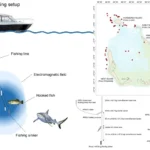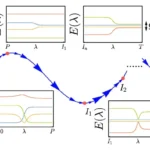A recent study by Universidad Nacional de Colombia researchers has unveiled a novel methodology to identify optimal time intervals for implementing Time-of-Use (ToU) energy tariffs. With a growing emphasis on environmental conservation and energy efficiency, government initiatives worldwide are increasingly focusing on demand response strategies, making this research particularly relevant.
The study published in MDPI Energies, conducted by researchers analyzing electric power demand variability in the Colombian electrical system, proposes a methodology that effectively transforms consumption data into variation using the coefficient of variation. By employing k-means data analysis techniques and the a priori algorithm, the researchers successfully identified time intervals suitable for implementing ToU tariffs.
Key determinations from the study include the identification of specific intervals for different types of days, with peak consumption periods observed during early morning hours on weekdays, Saturdays, Sundays, and holidays. The research suggests that these intervals, characterized by high variability peaks, are conducive to implementing ToU tariffs.
According to the case study, specific time intervals have been identified for different types of days. The peak consumption period on weekdays is between 5 and 7 hours, with the optimal interval from 5 to 18 hours. The study indicates that due to the high variability peaks in clusters with the most users, the early morning hours, especially from 6 to 9 h, are the most suitable for implementing Time-of-Use tariffs.
It is worth mentioning that a considerable percentage of users, ranging from 60 to 73% depending on the day type, exhibited low variability in consumption patterns, with a coefficient of variation close to 70%. As their consumption patterns were found to have low flexibility, these users were excluded from the analysis of differential tariff schemes.
The methodology identified a significant portion of users exhibiting low variability in consumption patterns, emphasizing the need for tailored approaches in differential tariff schemes. The research underscores the importance of considering additional factors, such as financial and generation data from network operators, for effective implementation.
While the proposed methodology is valuable in formulating Time-of-Use tariffs, the study acknowledges the need for further validation through pilot testing with users or direct surveys. Such validation processes would help ensure the effectiveness of the differential tariff schemes in promoting energy savings and efficiency for consumers while optimizing operational management for electric power companies.
Overall, this research contributes to the ongoing energy conservation and efficiency efforts, providing valuable insights into demand response strategies and differential tariff scheme formulation. As governments and industries worldwide prioritize sustainability, methodologies like these play a crucial role in shaping the future of energy management and consumption.





